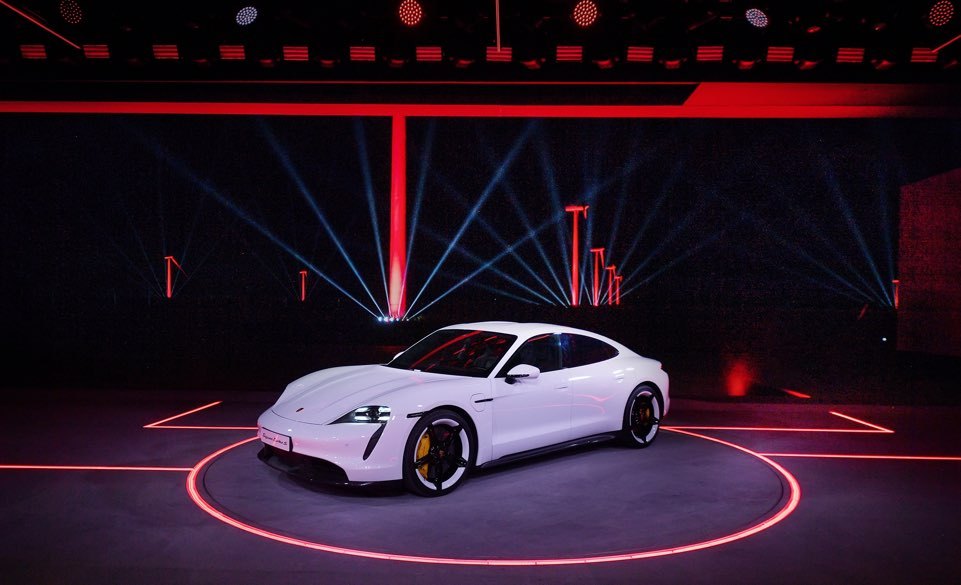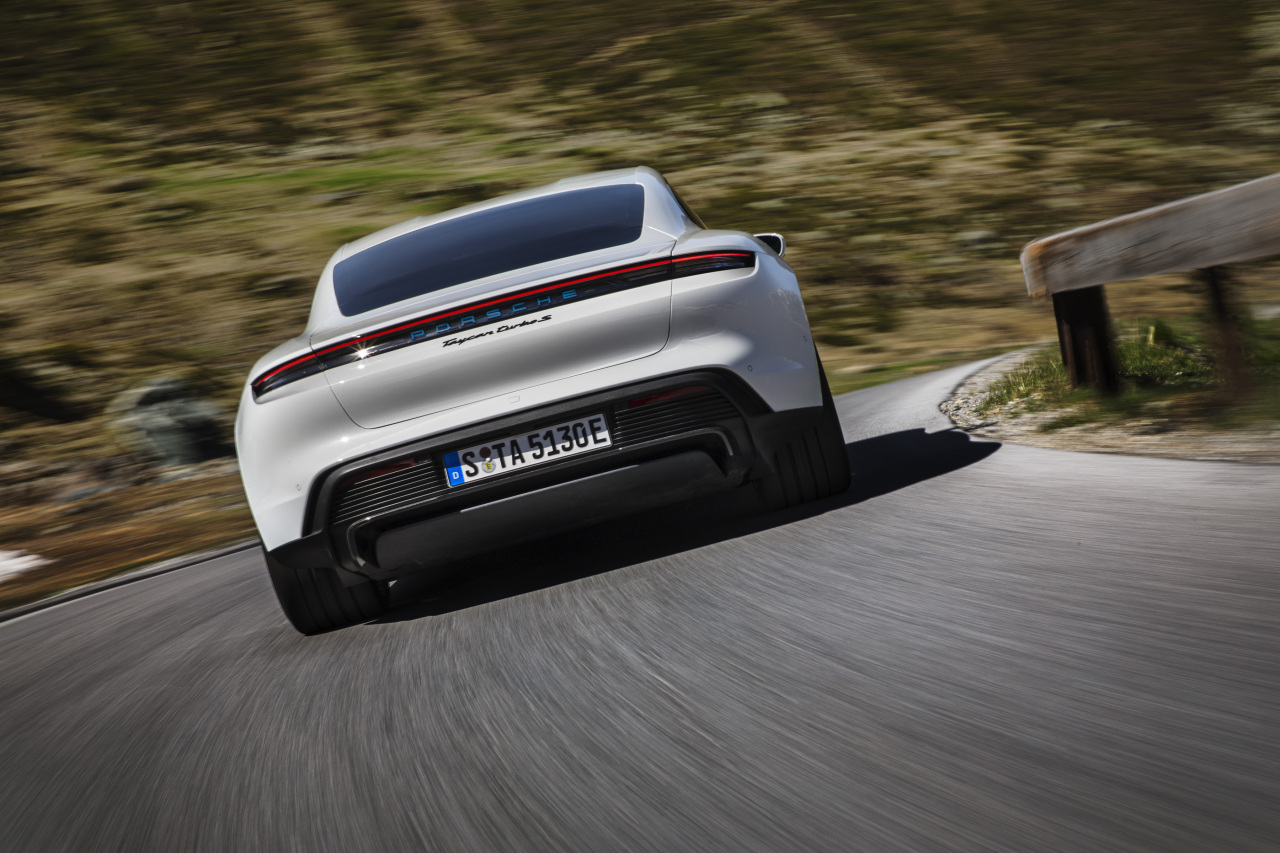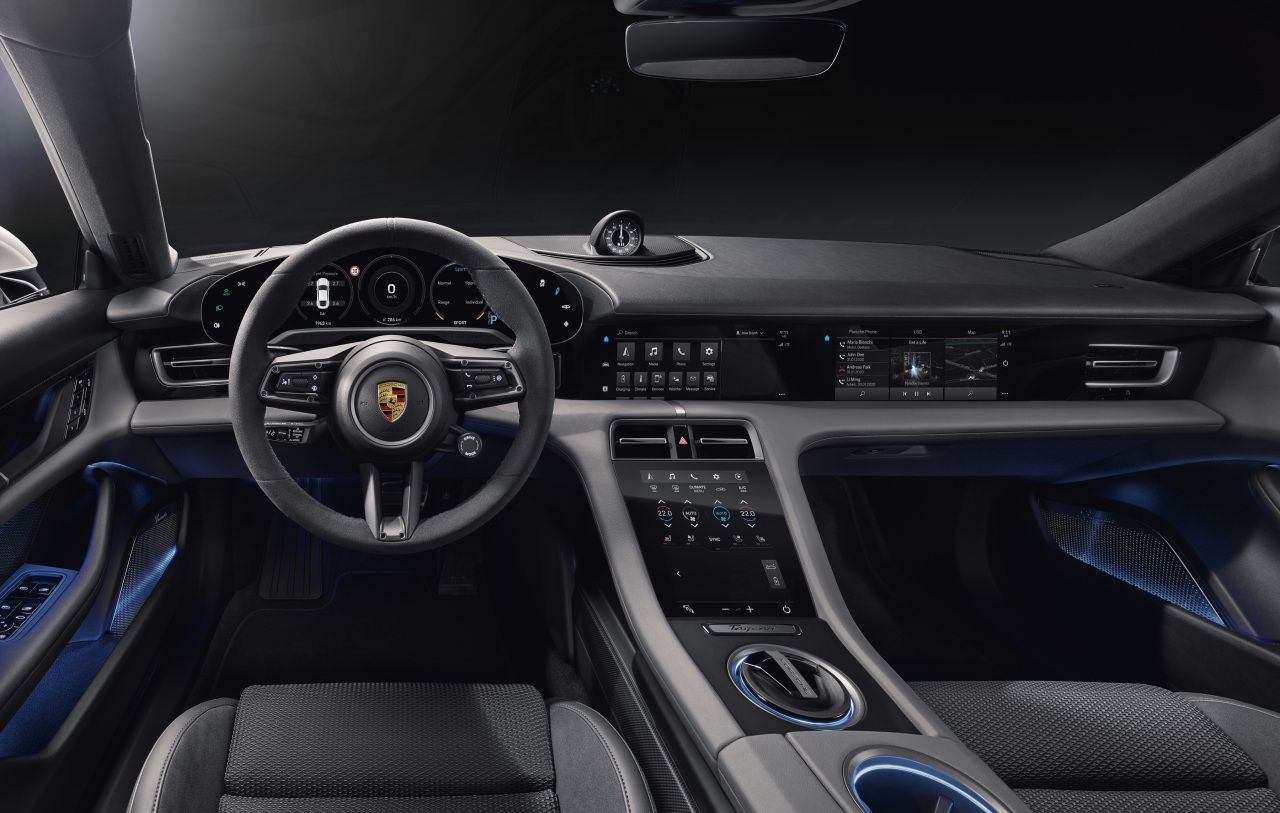Porsche unveils first-ever electric sports car Taycan
Taycan uses LG Chem’s battery cell ‘redesigned’ to fit into EV sports car
By Kim Da-solPublished : Sept. 5, 2019 - 11:58
FUZHOU, China -- German super car maker Porsche unveiled its first electricity-powered sports car Taycan on Wednesday, combining the premium brand’s heritage and innovation in terms of sustainability and digitalization.
The world premiere of Taycan was held simultaneously in three countries -- the US, Germany and China -- given the three countries’ importance as markets for electric cars.

According to Porsche, the four-door sports saloon is the first EV in the market that uses 800 volts instead of the usual 400 volts chosen by Tesla and other EV makers.
For Taycan’s battery cell, the German carmaker partnered with LG Chem. Porsche said it chose the Korean firm for its willingness to “redesign the battery layout,” moving away from mainstream EV battery layouts that focus less on the ratio of power to weight.
The 800-volt system allows the Taycan to be charged in 5 minutes for a 100-kilometer drive via a 250 kilowatt-DC fast charger, which is possible due to the liquid-cooling technology of the battery.
“Porsche is definitely taking a different direction (compared to other EV makers) in terms of reproducibility. Taycan can accelerate 20 times in a row, from zero to 200 kilometers per hour, while others models need specific cooling time,” Gernot Dollner, Porsche AG’s vice president of product and concept, said in an interview with Korean reporters.
The carmaker described the Taycan Turbo S and Taycan Turbo as the “most powerful production models that the sports car manufacturer currently has.”
With up to 761 horsepower, the Taycan Turbo S accelerates from zero to 100 kilometers per hour in 2.8 seconds, while the Taycan Turbo does this in 3.2 seconds. The speed cap for both models is 260 kph.
Taycan’s exterior does not look very different from the 911 model, as Porsche said it tried to keep its design DNA with a flat and wide front and highly contoured wings.

Taycan has Porsche’s typical sporty roofline sloping downward to the rear as well as an aerodynamically optimized sharp rear.
The carmaker said it has regenerated the original and classic features of the original 911. But the interior has been completely revamped.
The car’s dashboard has become simpler and wider, adopting a 10.9-infotainment display and an optional passenger display, which together form an integrated black-panel look, according to the automaker.
Porsche has selected Samsung Display and LG Display’s OLED for its 16.8-inch curved OLED in the front seat’s center infotainment display, marking the first time both Korean companies have supplied their curved OLED panels for mass-produced cars.
The interior is also completely leather-less, with sustainable olive-leather OLEA and fabric Race-Tex, which produce 80 percent less carbon dioxide when manufactured.

Over the next three years, the German sports car maker said it will inject 6 billion euros ($6.6 billion) into electro-mobility to seek partnerships with governments and related authorities in different continents in an effort to expand EV-charging infrastructure, not just Porsche-only charging stations.
Taycan will kick off manufacturing Monday following the opening of its Zuffenhausen factory in Germany.
The price for the Taycan Turbo begins from 152,136 euros, while the Turbo S costs 185,456 euros.
For the Korean market, the carmaker said it would begin the authentication process from October and plans to begin sales from the second half of next year. The price has not been confirmed yet.
By Kim Da-sol
Korea Herald correspondent
(ddd@heraldcorp.com)



![[Herald Interview] 'Amid aging population, Korea to invite more young professionals from overseas'](http://res.heraldm.com/phpwas/restmb_idxmake.php?idx=644&simg=/content/image/2024/04/24/20240424050844_0.jpg&u=20240424200058)















![[Today’s K-pop] Kep1er to disband after 2 1/2 years: report](http://res.heraldm.com/phpwas/restmb_idxmake.php?idx=642&simg=/content/image/2024/04/25/20240425050792_0.jpg&u=)